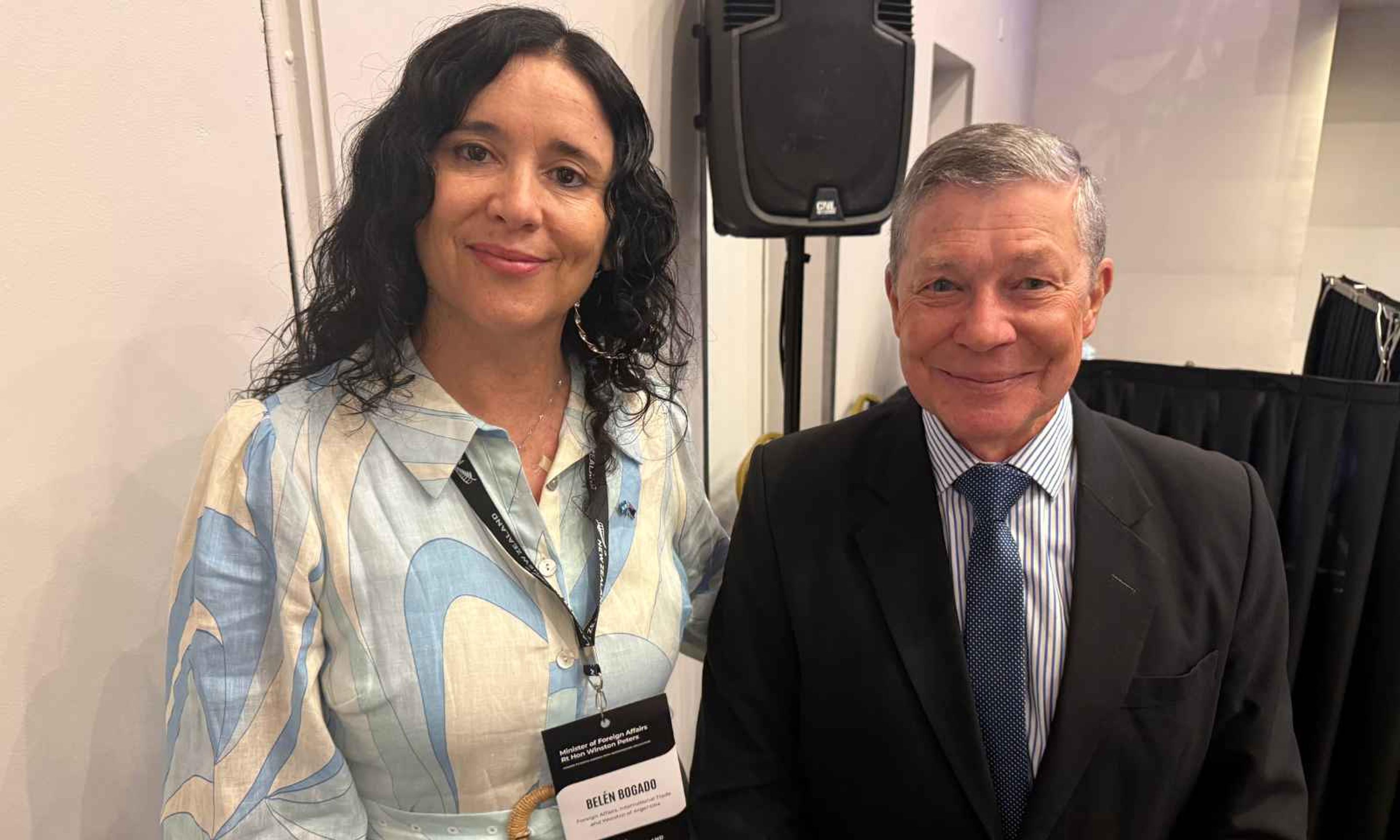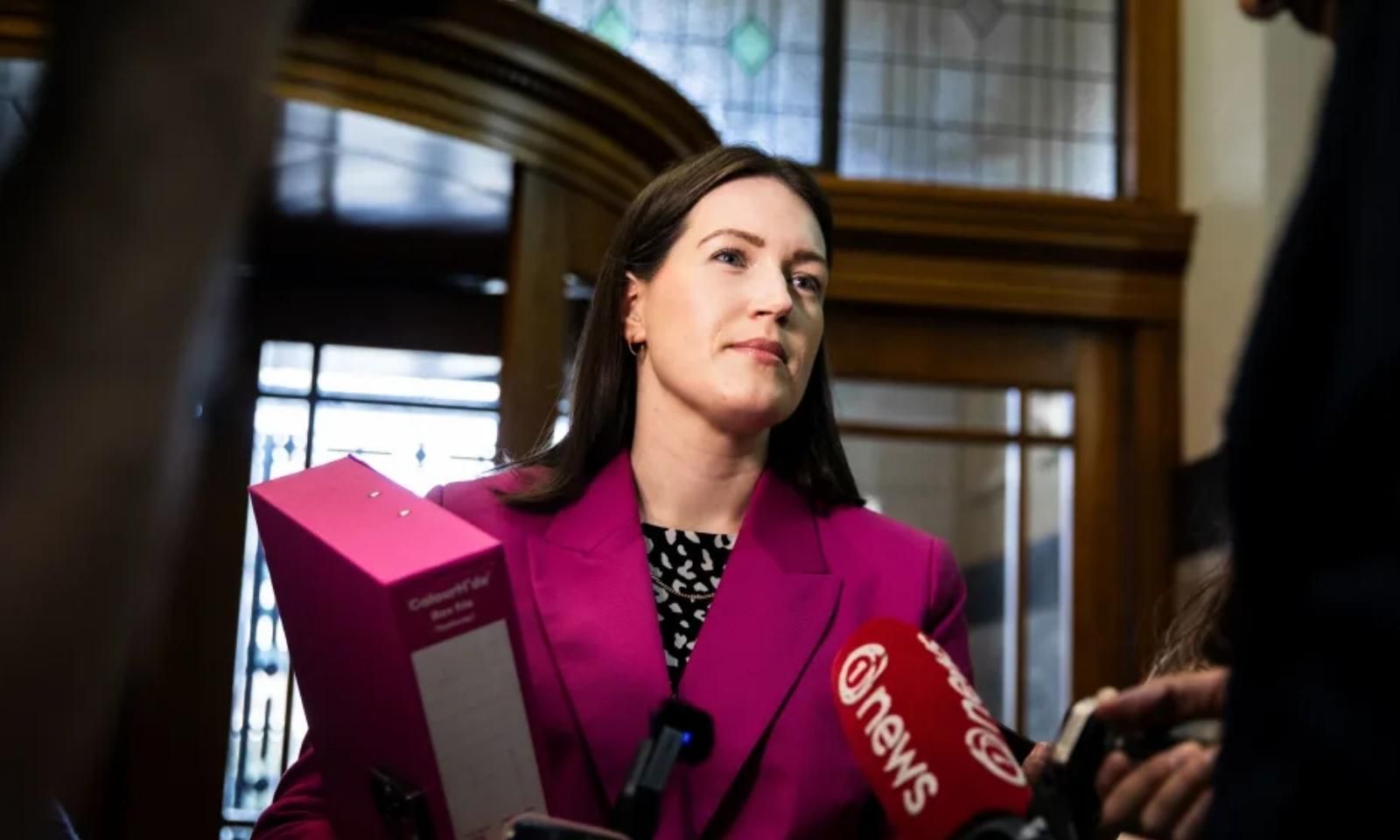

As of June 2024, the Pacific pay gap has grown to 17.2 percent.
Photo/File
Pay equity rollback hits Pacific women - PSA
The Public Service Association has criticised the Government’s overnight law change.



How the Pacific region could benefit from Argentina’s economic rebound, expert

Dave Rennie becomes first All Blacks coach of Pacific heritage

‘Without fear or favour’: Barbara Dreaver chronicles 30 years on the Pacific frontline


Tongan family in Abu Dhabi recount explosions as Middle East conflict escalates

How the Pacific region could benefit from Argentina’s economic rebound, expert

Dave Rennie becomes first All Blacks coach of Pacific heritage

‘Without fear or favour’: Barbara Dreaver chronicles 30 years on the Pacific frontline
The Public Service Association (PSA) brands the Government’s overnight pay-equity overhaul “a very dark day” for thousands of women, especially Pacific and Māori.
The Equal Pay Amendment Bill, passed under urgency yesterday, resets eligibility so occupations must be at least 70 percent female for 10 years and allows phased pay rises while cancelling current cases.
Speaking to William Terite on Pacific Mornings, PSA National Secretary Fleur Fitzsimon warns thousands of predominantly Pacific and Māori women will be stripped of their best route to fair pay.
“It's akin to the Minister walking into court and ripping up the litigation, we've never really seen anything like it in New Zealand,” Fitzsimon says.
“It is unacceptable in 2025, this government has made it a whole lot worse and harder for women to even seek justice, let alone get the pay rate they need and deserve.
“It is particularly bad for Pacific women, and that is a real concern… women who are Pasifika suffer not only because they are women, but because there is an ethnic pay gap.”
Green MP Teanau Tuiono also criticised the bill, saying Pacific and Māori women already earn less than Pākehā men and called it “shameful and disgraceful” legislation.
Workplace Relations and Safety Minister Brooke van Velden argues the rebuild process is “robust, workable and sustainable” as annual settlement costs reach $1.78 billion dollars.
Public-service data show the Pacific pay gap widens to 17.2 percent, with Pacific women taking home 20.9 percent less than the average male wage.
Median household income for Pacific peoples also sits at $47,797 compared to the national median of $57,000.

Minister Brooke van Veldon. Photo/RNZ/Samuel Rillstone
Westpac Senior Economist Satish Ranchhod says the unemployment rate will likely climb from 5.1 percent to 5.3, the highest since 2016, with young people, Māori and Pasifika most affected.
“A lot of it comes down to the nature of a lot of the jobs that are being affected right now,” Ranchhold says.
“While the economy is starting to turn higher, it's still pretty gradual.
“It’s sectors like construction and parts of our services sector that we think are still sluggish.
“Those are areas where we do see a lot of Pacific people, and a lot of younger people employed, and with the sluggish conditions in those sectors, we are seeing some challenging employment conditions.”
Ranchhod says families still face “powerful headwinds” from inflation and interest rates but expects conditions will soon improve by late 2025 as the Reserve Bank cuts the cash rate.
Watch Satish Ranchhod’s full interview below.
Amid this economic landscape Fitzsimons says she does not buy into the Government’s justification for the bill, saying it chose to “give billions of dollars in unaffordable tax cuts to landlords and others”.
“This is instead of supporting women and female-dominated industries who are underpaid and undervalued for the important caring work they do.”
She also criticises the bill’s urgency filing, questioning why the regular process which scrutinises bills step-by-step was not initiated like it was for the controversial Treaty Principles Bill.
“We’re going to be fighting this every single day between now and the election,” Fitzsimon adds.
“We'll be fighting it in the courts, on the streets, in communities.
“We cannot let the Government get away with this - it is an internationally outrageous stance that they've taken.”
Watch Fleur Fitzsimon’s full interview below.